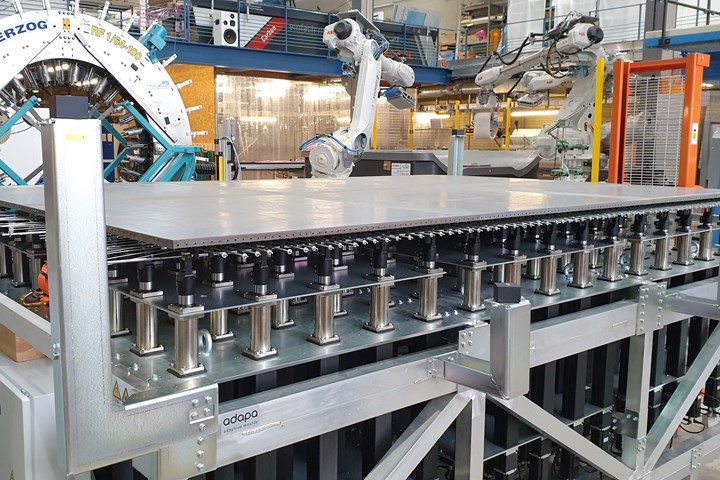Adapa A/S technology chosen for flexible composite design and manufacture
The University of Stuttgart Institute of Aircraft Design is using adaptive mold technology to develop composite products and automated robotic manufacture processes for the construction industry.

Photo Credit: University of Stuttgart Institute of Aircraft Design
It was recently announced that the (Stuttgart, Germany) Institute of Aircraft Design have chosen ’ (Aalborg, Denmark) adaptive mold technology in a project aimed at introducing composites in the construction industry, with reduced material use through load-path optimized composite structures and automated manufacturing to reduce CO2 gas emissions.
Other requirements that the technology is said to support includes an interaction with pre-designed production processes while still enabling flexibility in production design. Further, because the composite structures are to be manufactured based on 3D design files, and will also be used for predicting the mechanical and material properties of the final structures via simulations for future potential, the university felt this technology fit its expectations.
Related Content
-
Composites end markets: Infrastructure and construction (2024)
Composites are increasingly used in applications like building facades, bridges, utility poles, wastewater treatment pipes, repair solutions and more.
-
Norco GFRP molds meet high-quality cast concrete beam production needs
A project with P&M successfully achieved manufacture of six 20-meter-long architectural beams for an R&D facility with near-seamless surfaces and on a tight production schedule.
-
Sustainable Infrastructure Systems creates fiber-reinforced post-consumer plastic structural panels
Australian composites manufacturer offers a scalable building solution, already established in a pedestrian bridge application, to tackle unprocessed soft plastics waste.



